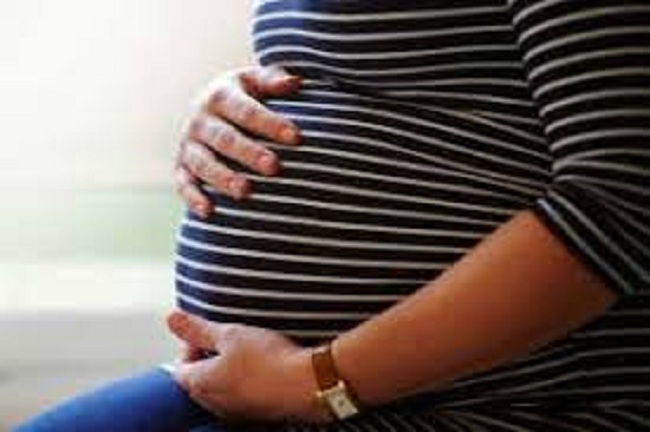Doctor’s Note: Pregnancy And Coronavirus By Dr. Amir Khan
What do pregnant women and new mothers need to know about coronavirus? There is a lot we do not know about how coronavirus affects pregnant women but our understanding of the virus will increase with time.
Being pregnant can be a worrying time for any mother-to-be, even when all is well.
They have to avoid certain foods – no more soft cheese and shellfish, for instance – their bodies are changing dramatically and their normal routines can often be disrupted.
The United Kingdom is the latest of a number of countries to include pregnant women in the group of vulnerable people it is advising should “socially distance” themselves to reduce their chances of contracting coronavirus. Understandably, lots of pregnant women and their families have been left feeling worried and confused.
The bottom line is that we do not yet know enough about how the COVID-19 disease caused by the new coronavirus affects pregnancy to draw any definite conclusions, but small numbers of pregnant women have contracted the virus and there is enough known for us to advise extra precaution for women who are expecting.
A weaker immune system
It was initially thought that during a pregnancy a woman’s immune system is weakened making her susceptible to infections. However, as with most things concerning the human body, it is not that simple and newer evidence suggests that a woman’s immune system is in a state of flux during her pregnancy, where at some points it is not as aggressive as normal and other times not.
This variable immune status during pregnancy is vital to accommodate the developing baby – for different reasons at different stages of pregnancy. For instance, in the early stages of pregnancy, the immune system has to adjust to allow for implantation of what is, after all, a foreign body. At other times, the immune system needs to adjust again but in a different way, for example when a woman’s body is preparing for labour.
This, of course, is an over-simplified explanation, but the point is that having a fluctuating immune system does put you at higher risk of the complications of COVID-19, such as respiratory difficulties and even pneumonia.
The first thing to stress is that women should still attend all their antenatal hospital appointments unless told otherwise by their doctor or midwife.
For now, there is no reason to change your birthing plan, whatever that maybe, if you have one. A birthing plan lays out what you are hoping for the birth – for example, whether you want to have your baby at home or in hospital, and what sorts of pain relief you might want to have.
However, if you develop symptoms that are consistent with coronavirus – a persistent dry cough or a high temperature – you must self-isolate and speak with your doctor or midwife.
Certainly, women who have other health conditions and are pregnant need to be extra vigilant and consider social distancing if not self-isolation during their pregnancy. Women who develop diabetes – a condition known as gestational diabetes – as a result of their pregnancy should also take care and limit social contact.
Being diagnosed with gestational diabetes already puts you in a higher-risk pregnancy group even without the coronavirus, because it increases your chances of complications during pregnancy and birth. Furthermore, high levels of blood sugars for a prolonged period of time – the result if gestational diabetes is not diagnosed and managed properly – can weaken your immune system further.
For otherwise healthy pregnant women, given how the strength of their immune system varies during the trimesters, it would be prudent to take precautionary measures and consider social distancing where possible.
As a lot of pregnant women live with partners and perhaps have older children too, the same advice applies to them, practice social distancing so you do not put your pregnant wife, mother, sister or aunt at risk.
This might include working from home (for those who can do this), cutting back on social contact and avoiding crowded spaces.
General advice for pregnant women to help ensure a healthy pregnancy and as good immunity as possible is to stick to a good diet rich in iron (dark green leafy vegetables, fish and eggs) and folic acid (beans, pulses and green, leafy vegetables). A daily, pregnancy-specific multivitamin tablet may also help.
Can I pass coronavirus to my baby?
A question I am constantly being asked by my patients and their families is whether a pregnant woman who contracts COVID-19 could pass it on to her developing baby.
There are, indeed, lots of viral, bacterial and fungal infections that can be passed on to the baby during pregnancy, such as chickenpox, rubella, toxoplasmosis, hepatitis, and HIV.
However this is not the case for all viruses – some do get passed on, some do not.
There is currently no evidence to suggest that coronavirus can be passed to an unborn baby if the mother is infected.
A study published in The Lancet, the independent medical journal, which followed nine pregnant women who had tested positive for COVID-19 in China, found that none of their babies tested positive for the virus at birth (it is worth noting all the babies were born via cesarean section). Although these numbers are small, they are promising.
There was also no evidence of the virus being present in these women’s amniotic fluid – that is the fluid that surrounds and cushions the baby during pregnancy – as well as no evidence found in blood samples taken from the umbilical cord of each of the babies. This would suggest that a normal, vaginal delivery is safe, but we cannot yet give a definitive answer about this as the numbers in the studies so far are so small.
All of this would suggest there is little evidence of babies contracting the virus from their mothers during the pregnancy.
Can I pass it on by breastfeeding?
It is less clear when it comes to breastmilk, however; we still cannot draw any real conclusions about whether or not breastmilk may carry the virus.
Some viruses, such as HIV or cytomegalovirus (CMV), have been known to be transmitted in breastmilk but, so far, there is no evidence that COVID-19 itself can be.
The advice as it currently stands is for mothers who are free of the virus to continue breastfeeding their babies but to ensure good handwashing before the feed.
If the mother develops a temperature or cough, then she should consider using a breast pump to express her milk and allowing someone who is well to feed her baby until she feels better.
There is plenty of evidence that breast milk is good for your baby’s immune system and stopping it altogether may make them more susceptible to the virus.
As time goes on and, inevitably, more pregnant women do contract the virus, we will know more about how the virus behaves, but for now, taking sensible precautions – handwashing, social distancing, staying at home, not having visitors – is the most sensible course of action.





